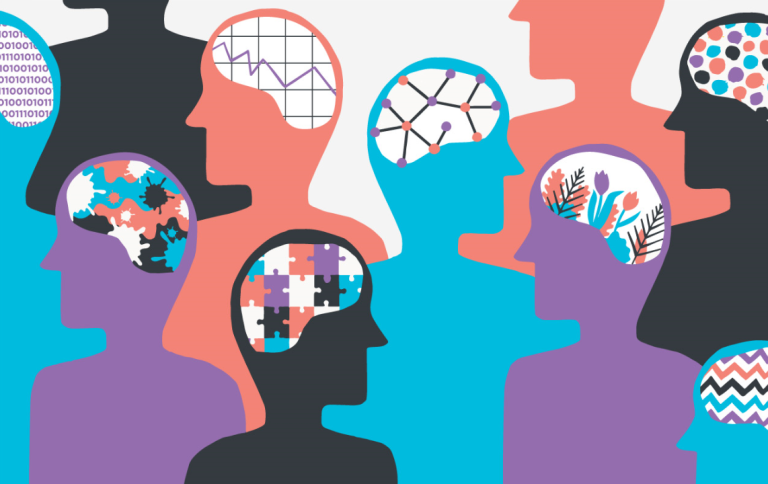Employer to modify policies & procedure. How can HR accomplish this? – Look at leniency! It does not have to be black & white.
The most challenging function for any HR Professional is getting employees to comply with company policies and practices. By having proper policies and practices a company reinforces what is expected of employees and helps employers to better manage staff more effectively. Employees thus become aware of what behaviours, habits and value system is acceptable and unacceptable in the workplace.
However as much as most companies would like to follow the rules as set out by LRA (Labour Relations Act Act 66 of 1995) and BCEA (The Basic Conditions of Employment Act, 75 of 1997) there will be the occasional instances where management together with the HR Professional need to find ways around these policies and procedures for the sake of an employee’s mental wellbeing.
According to Resources.com “Mental health is just as important as physical health. Mental illness may be detrimental to a person, as it impacts happiness, productivity, and collaboration. Mental health issues may affect companies, in the form of:
- Turnover
- Absenteeism
- Poor employee performance
- Employee substance abuse
- Work-related accidents
- Workplace violence or harassment
An employee’s ability to make decisions, to manage their time, to complete physical tasks, to interact with others, and communicate is in most cases hindered because of their mental state of mind. Employers must take care of their employees if they want them to do their jobs well.
The Employment Equity Act defines mental illness as a form of disability. The EEA refers to mental illness as a “mental impairment“. Mental impairment is defined as “a clinically recognised condition or illness that affects a person’s thought processes, judgment or emotions”.
According to WHO, “Organizations have a responsibility to support individuals with mental disorders in either continuing or returning to work. Research shows that unemployment, particularly long-term unemployment, can have a detrimental impact on mental health. Many of the initiatives outlined above may help individuals with mental disorders. In particular, flexible hours, job-redesign, addressing negative workplace dynamics, and supportive and confidential communication with management can help people with mental disorders continue to or return to work. Access to evidence-based treatments has been shown to be beneficial for depression and other mental disorders. Because of the stigma associated with mental disorders, employers need to ensure that individuals feel supported and able to ask for support in continuing with or returning to work and are provided with the necessary resources to do their job.”
With the above in mind, how does HR deal with mental health?
HR professionals cannot solve an employee’s mental health issues alone however HR professionals are usually their first point of contact if it is not their direct reports. HR can offer support while the employee is able to get assistance and that makes a difference! Company’s departmental heads also play a vital role, and they need to recognize and immediately address an employee’s mental health issues.
What are some of the actions taken to achieved this?
1. HR can encourage Management, departmental heads, and employees to take mental illness seriously:
- offer an Employee Assistance Programs (EAP’s). They serve as the first place an employee can go if they need help.
2. HR can arrange training for Company Leaders to correctly Identify and support employees that have mental illness issues:
- HR Department could host internal training sessions, hire external service provider, or online training programs.
3. HR can create a collaborative work culture with managers and employees:
- Offer flexible work hours or work from home (Hybrid work). Ensure employees take their lunch so they can disconnect from work and focus on relaxation. Have casual dress Fridays where a more relaxed environment is created.
4. HR can assist by removing the stigma surrounding mental illness and encouraging open communication in the workplace
- look at how the employees working environment could be contributing to their issues. It could be lack of job insecurity, a lack of balance between work and home life, a toxic work environment due to a toxic manager or colleagues, and too much work.
There is always more that an HR Professional can do for an employee’s wellbeing and mental health. Just by showing care and providing one with support you remove the stigma around mental health. As an HR professional, the change starts with you!
Subashni Pillay – Group HR
I consider myself an adaptable and innovative Group HR manager with more than 10 years of experience in managing all aspects of employee relations in my various job positions —from Compensation & benefits, Learning and development, labour law compliance as well as Employee participation and communication across five companies within the SMG Group. I have spent the last 4 years in my current position by developing my HR skills and I have recently completed my bachelor’s degree in Business Administration through Unisa with majors in HR, PR Communication and Marketing. I wanted to incorporate the business aspect to my qualification as I believe that this would enable me to understand the business better! I enjoy engaging, leading and the opportunity to empower and motivate my team and fellow employees. I believe my experience and training has prepared me for my current role and I hope to see many years at Skin Rejuvenation Technologies and the greater Southern Medical Group of companies.
























